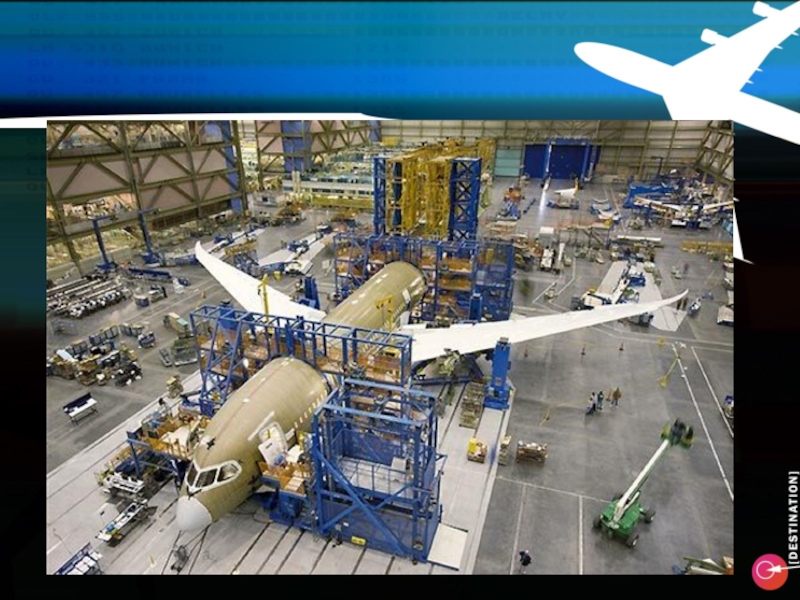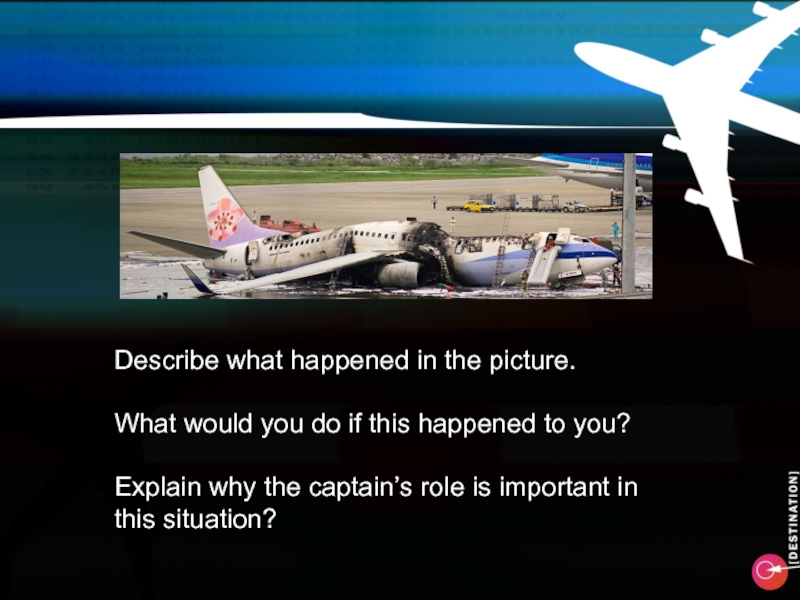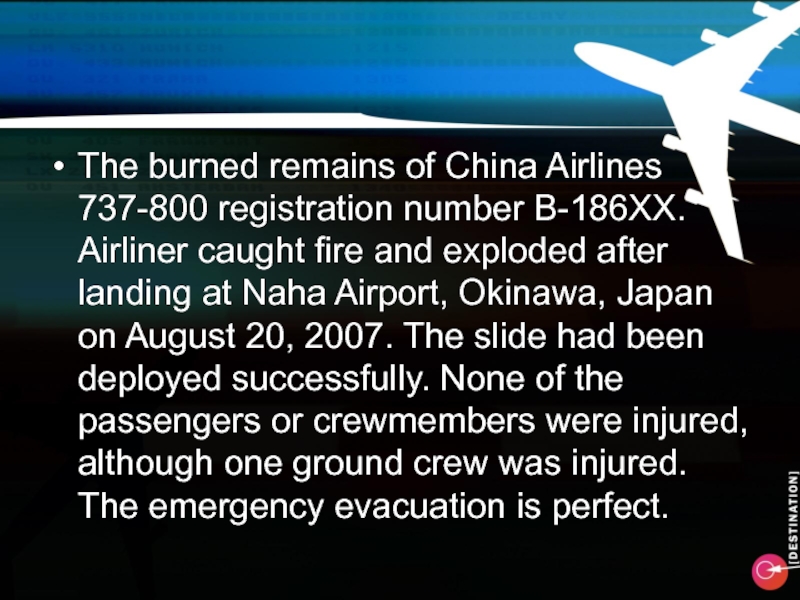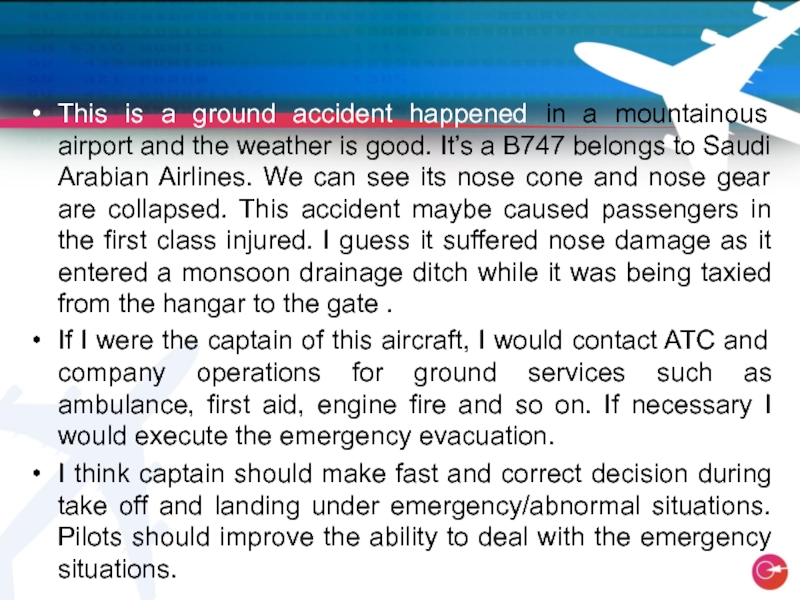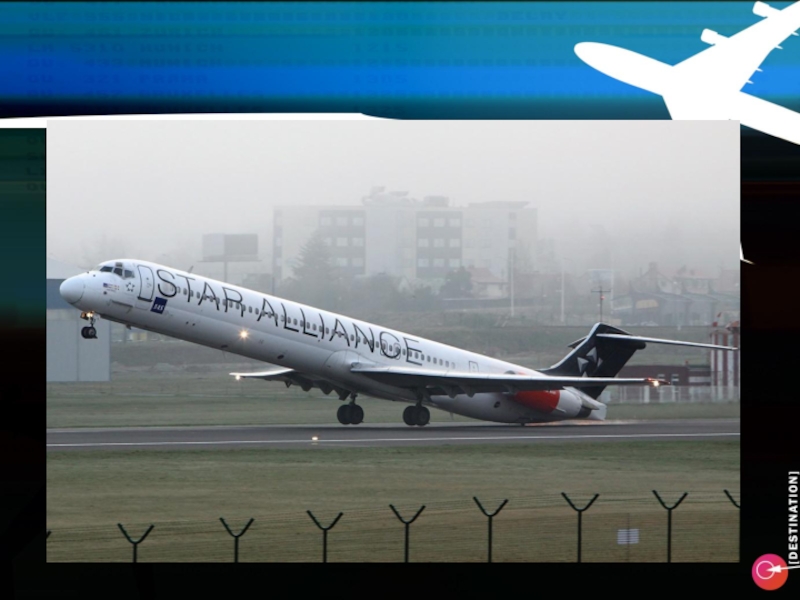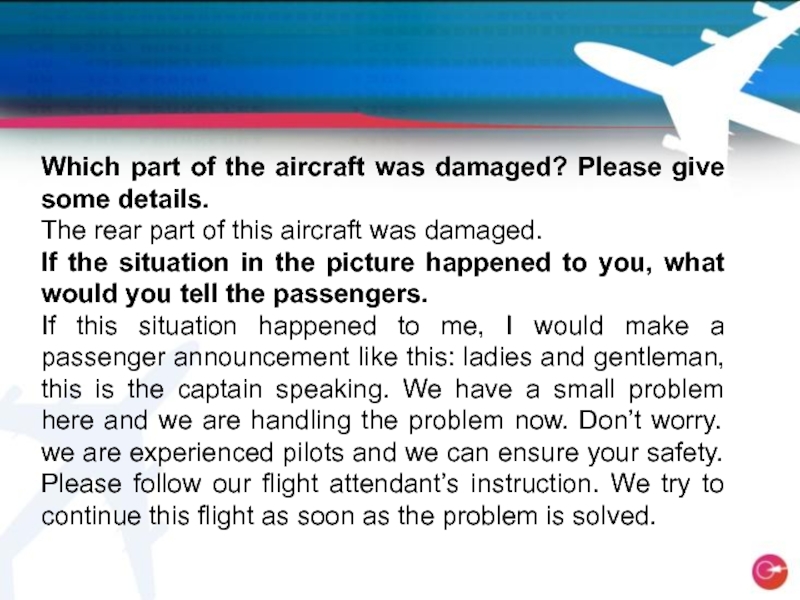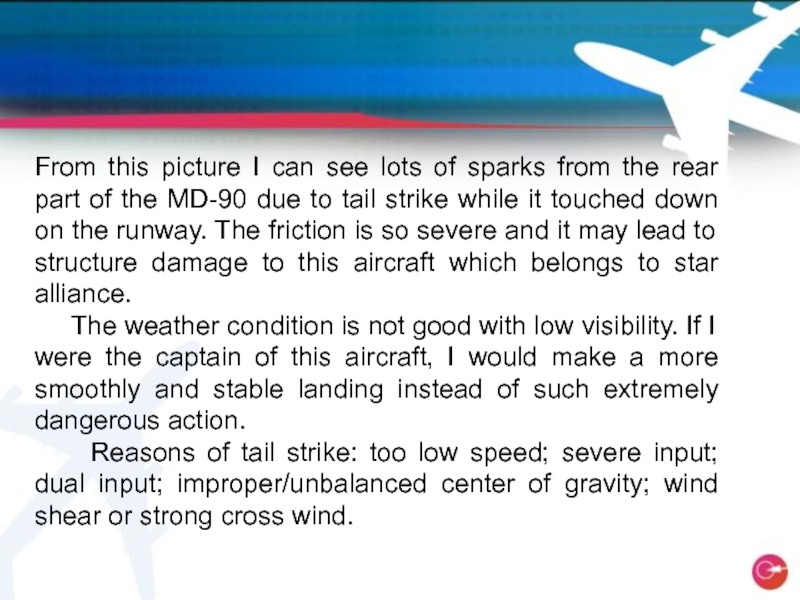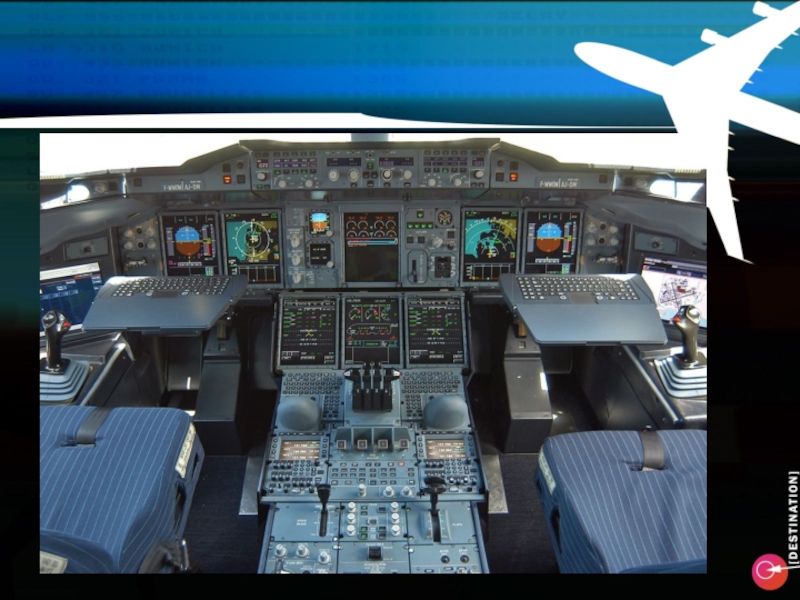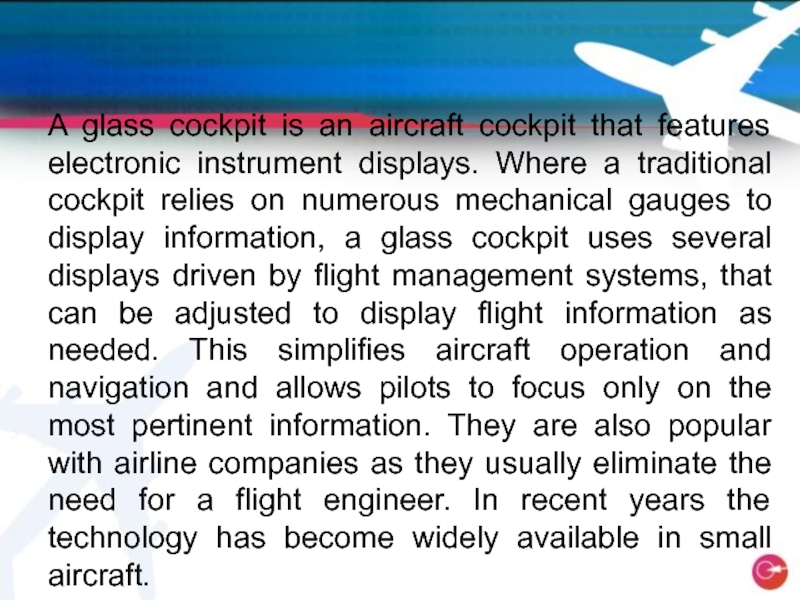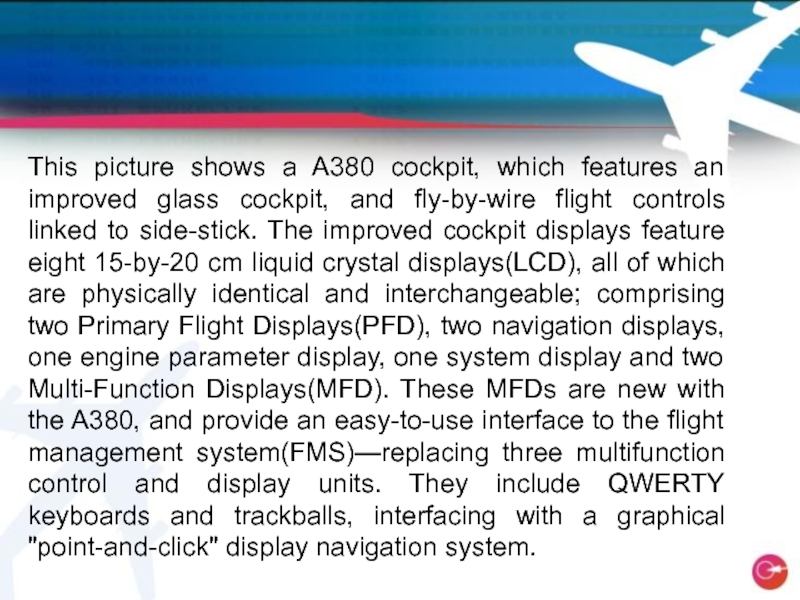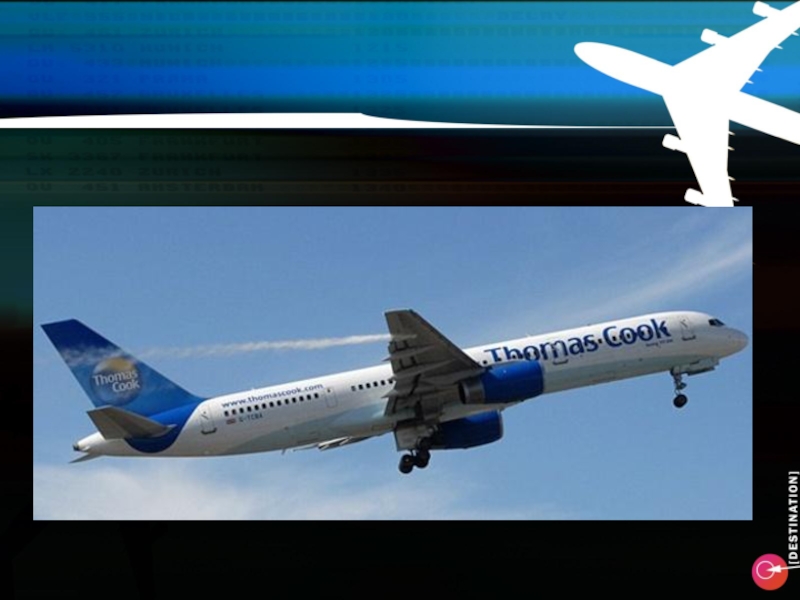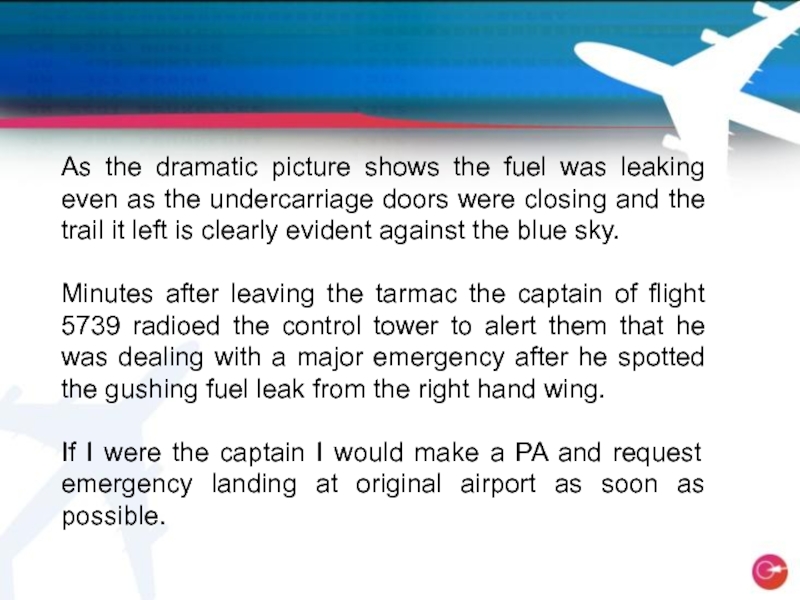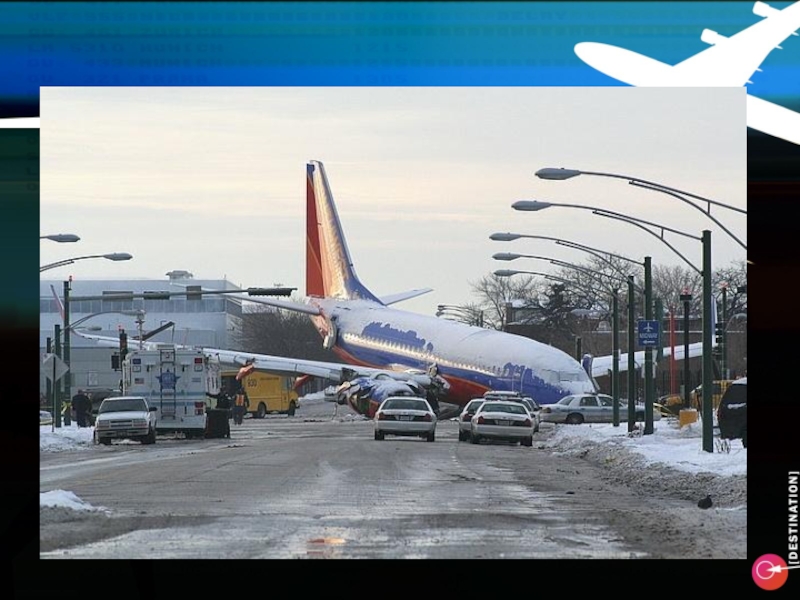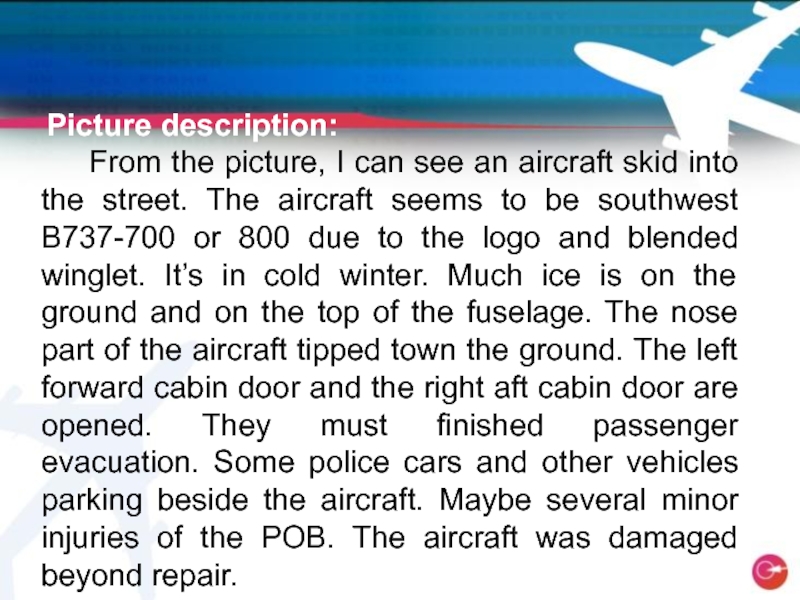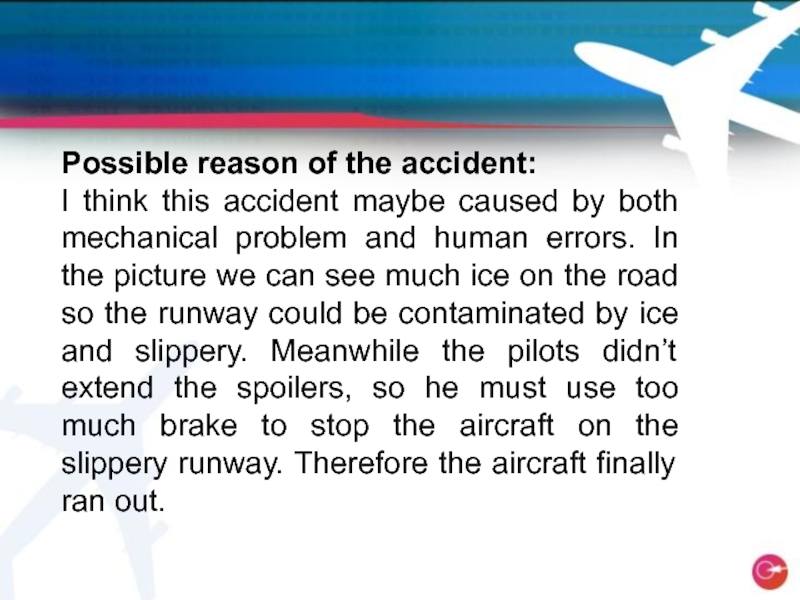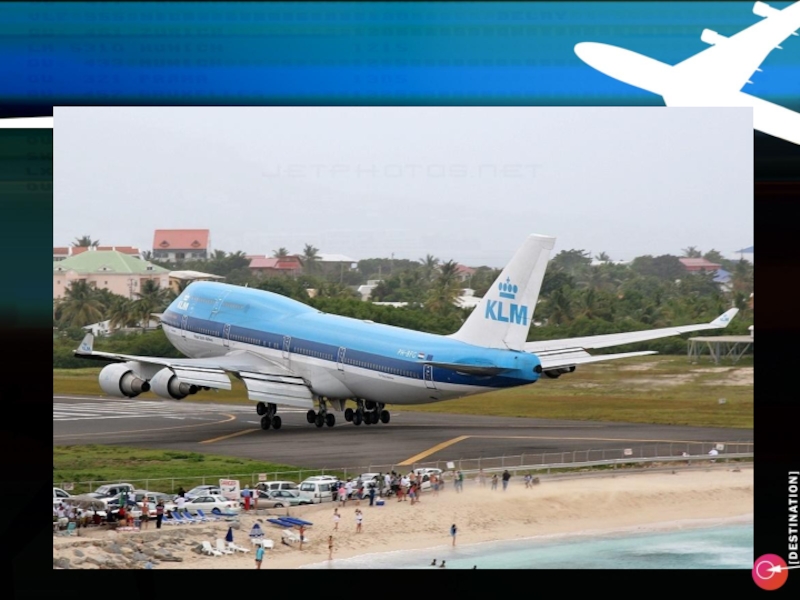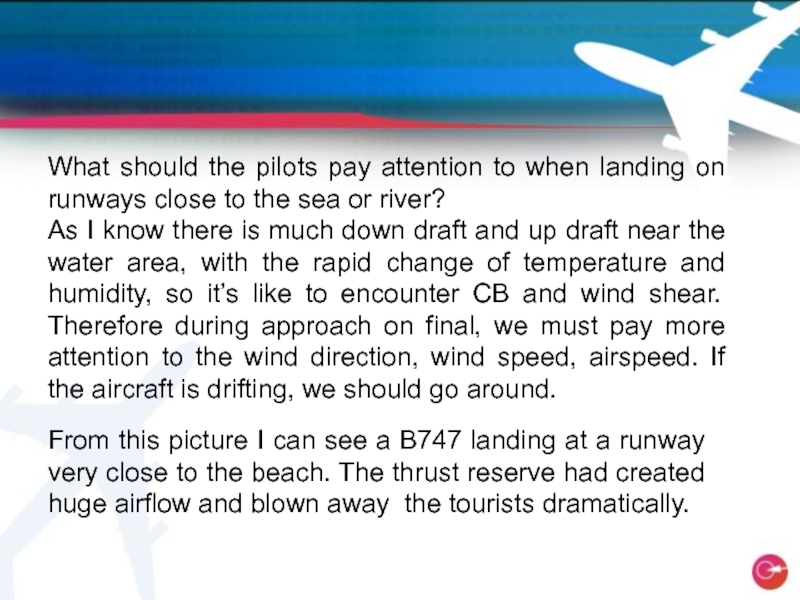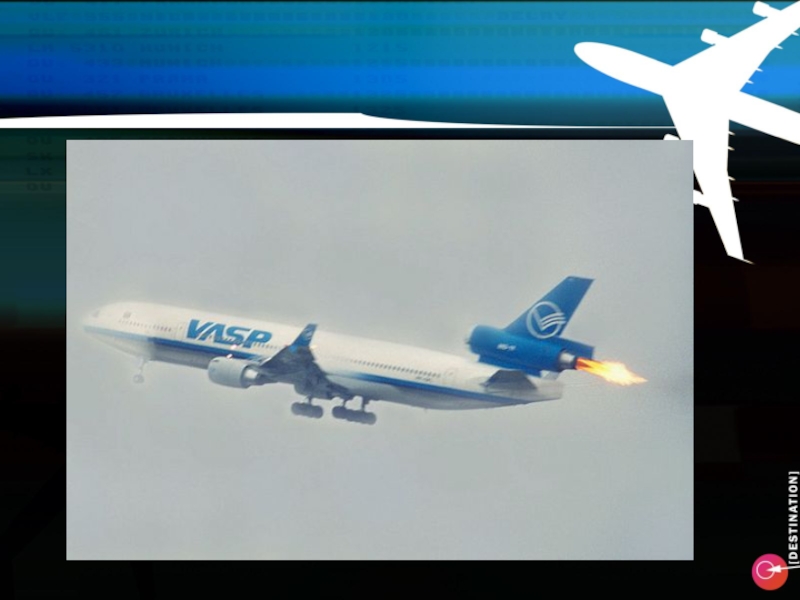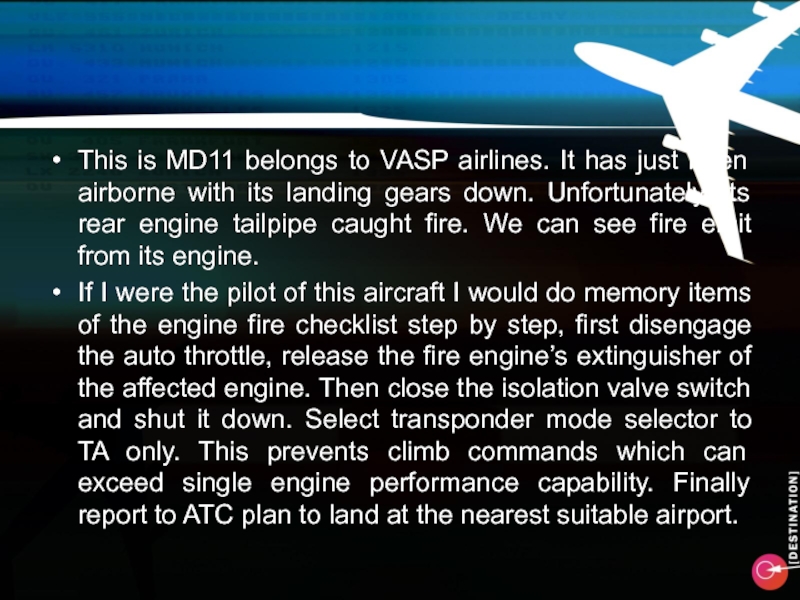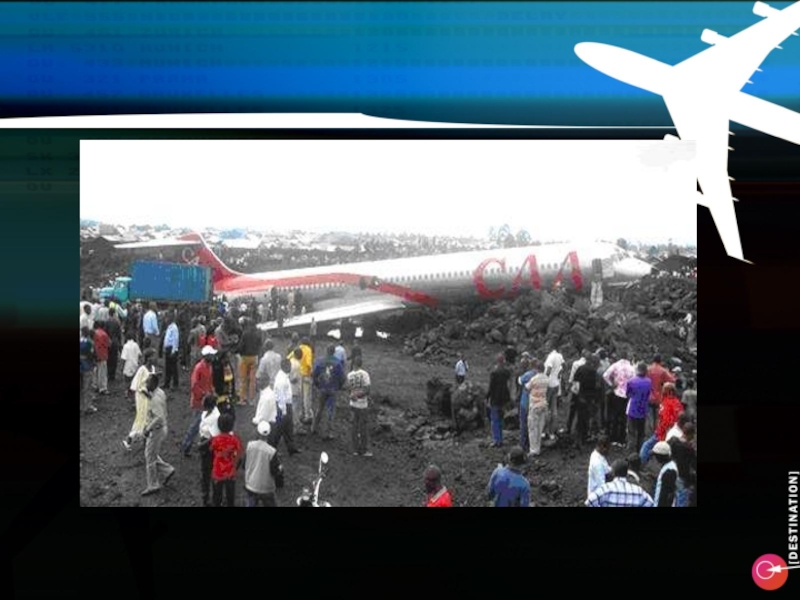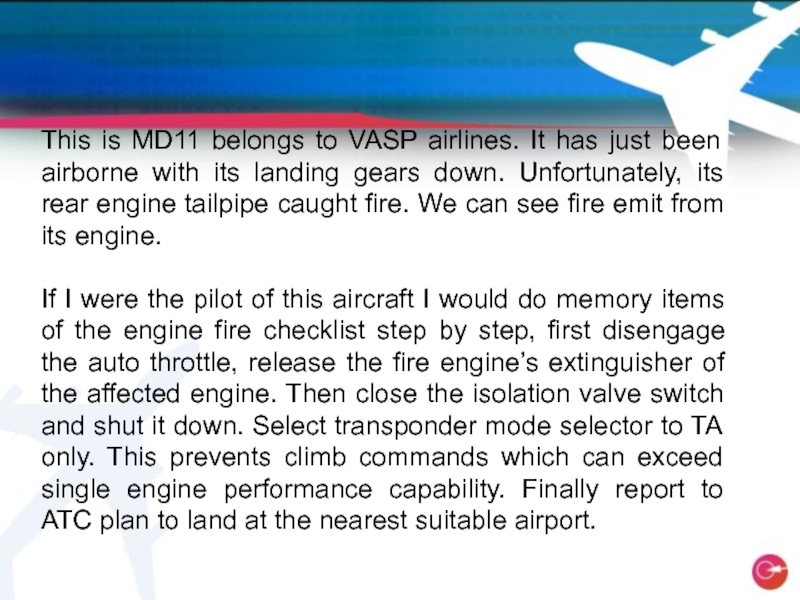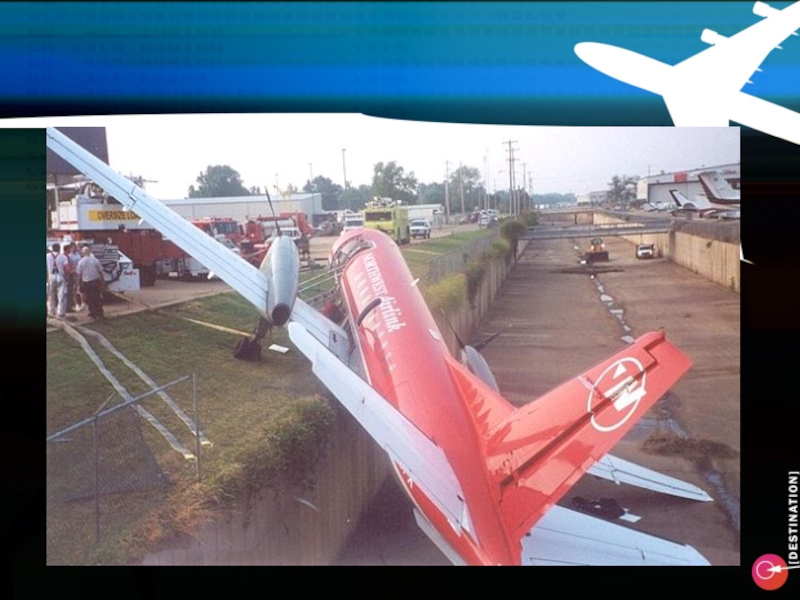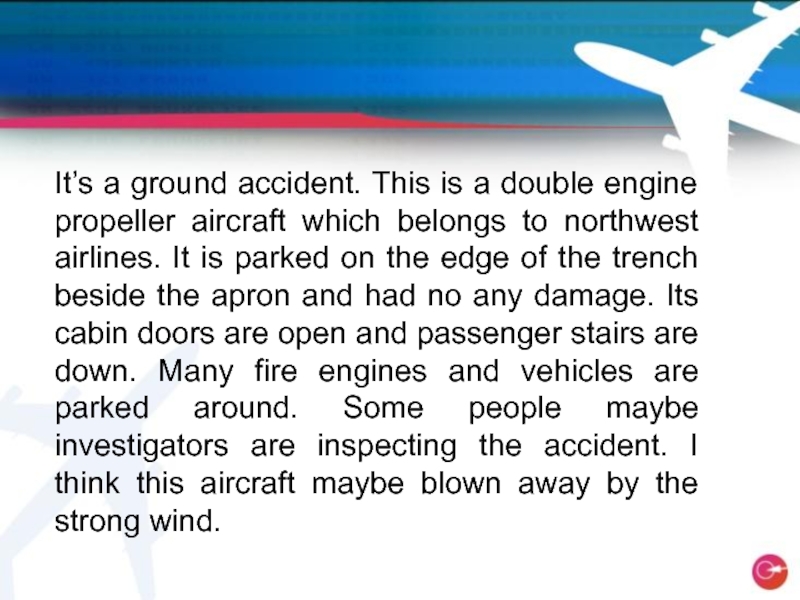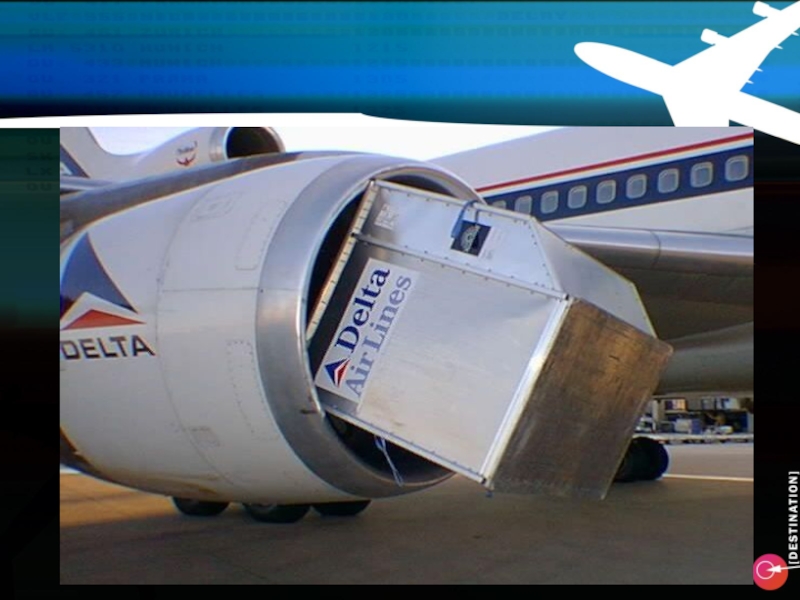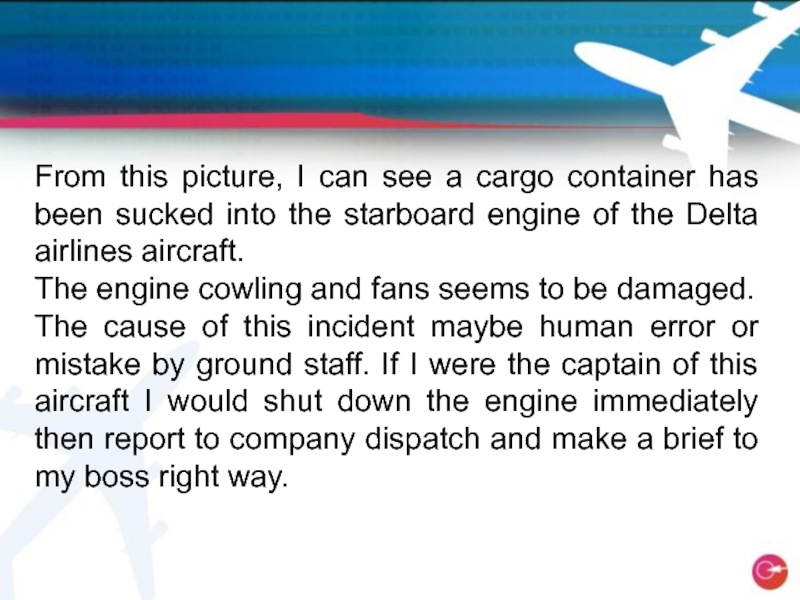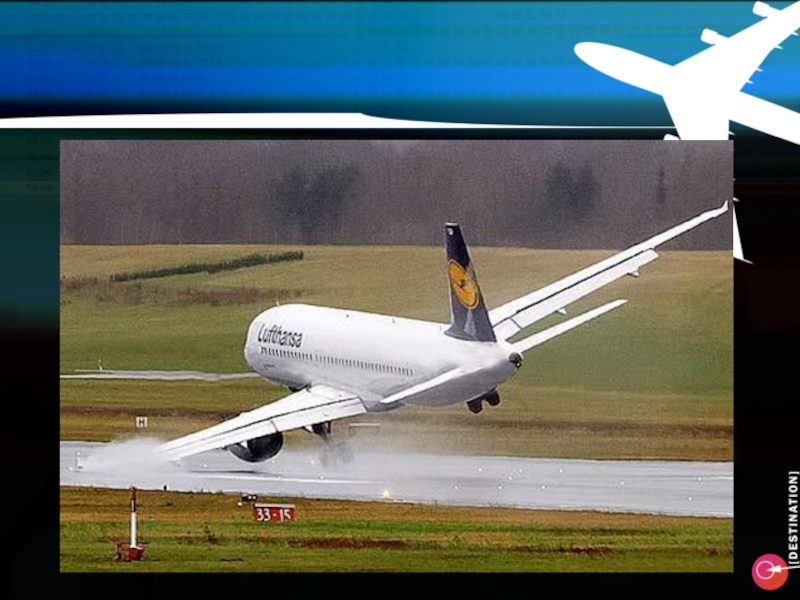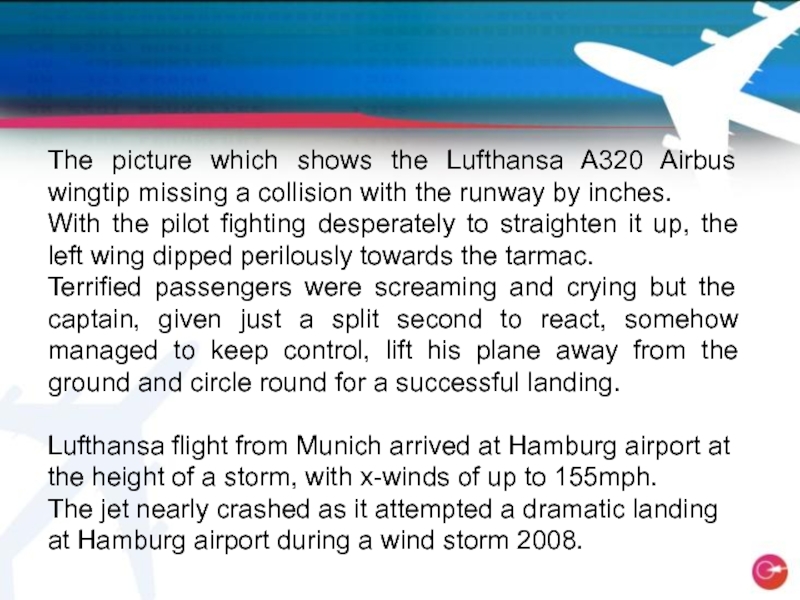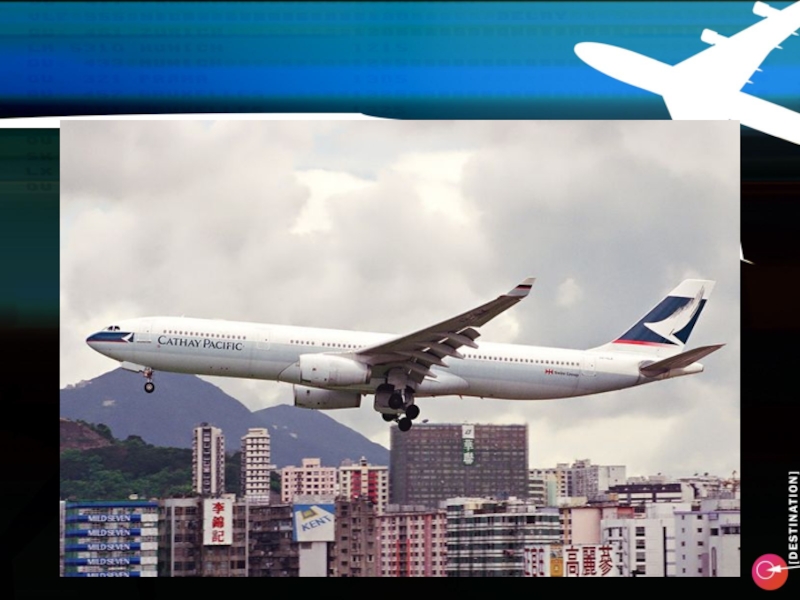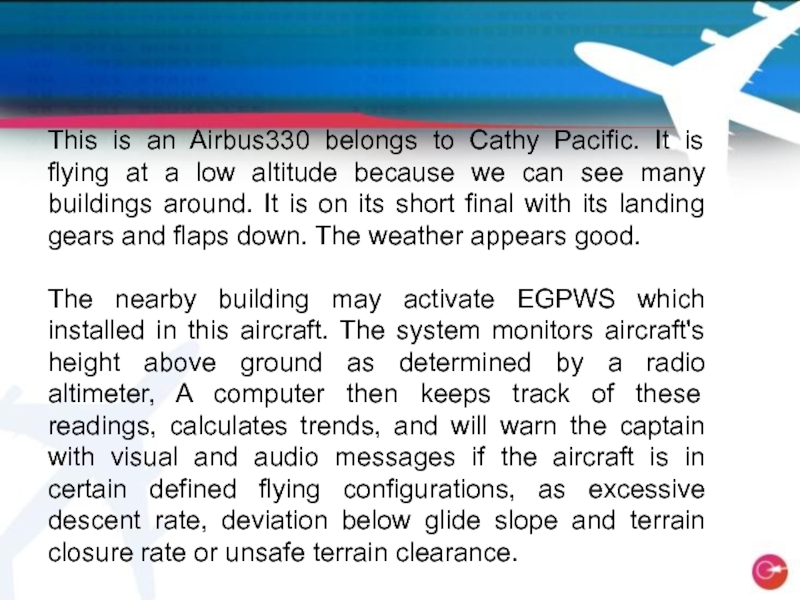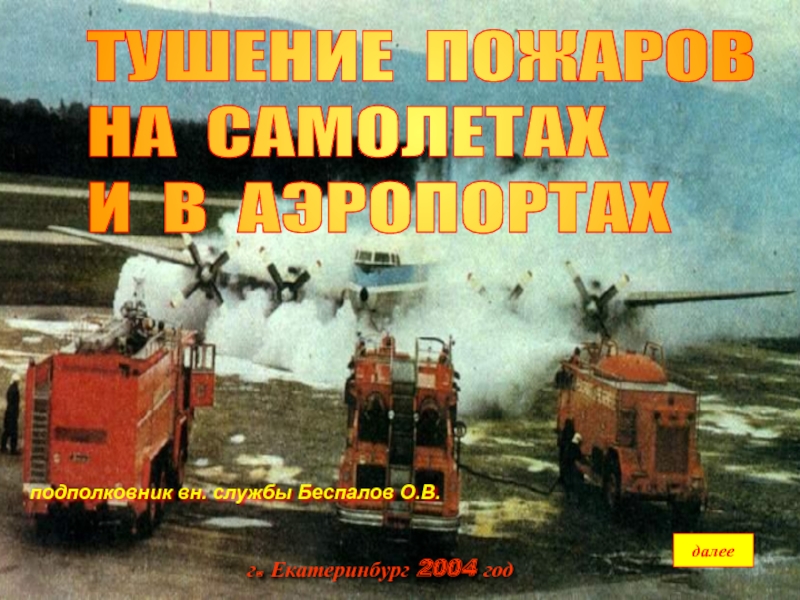- Главная
- Разное
- Дизайн
- Бизнес и предпринимательство
- Аналитика
- Образование
- Развлечения
- Красота и здоровье
- Финансы
- Государство
- Путешествия
- Спорт
- Недвижимость
- Армия
- Графика
- Культурология
- Еда и кулинария
- Лингвистика
- Английский язык
- Астрономия
- Алгебра
- Биология
- География
- Детские презентации
- Информатика
- История
- Литература
- Маркетинг
- Математика
- Медицина
- Менеджмент
- Музыка
- МХК
- Немецкий язык
- ОБЖ
- Обществознание
- Окружающий мир
- Педагогика
- Русский язык
- Технология
- Физика
- Философия
- Химия
- Шаблоны, картинки для презентаций
- Экология
- Экономика
- Юриспруденция
Pictures. Your topic goes here презентация
Содержание
- 1. Pictures. Your topic goes here
- 3. Your Topic Goes Here I think the
- 4. Describe what happened in the picture.
- 5. The burned remains of China Airlines
- 7. This is a ground accident happened
- 8. YOUR SUBTOPICS GO HERE
- 9. Transitional Page This picture is taken from
- 11. Transitional Page Which part of the aircraft
- 12. Transitional Page From this picture I can
- 14. Transitional Page A glass cockpit is an
- 15. Transitional Page This picture shows a A380
- 17. Transitional Page As the dramatic picture
- 19. Transitional Page Picture description:
- 20. Transitional Page Possible reason of the accident:
- 21. 1.Can you tell me what is
- 22. Transitional Page According to the picture, I
- 24. Transitional Page What should the pilots pay
- 26. This is MD11 belongs to VASP
- 30. Transitional Page This is MD11 belongs to
- 32. Transitional Page It’s a ground accident. This
- 34. Transitional Page From this picture, I can
- 36. Transitional Page The picture which shows the
- 38. Transitional Page This is an Airbus330 belongs
- 39. Thank you!
Слайд 3Your Topic Goes Here
I think the 737 would be assembled in
Слайд 4
Describe what happened in the picture.
What would you do if this
Explain why the captain’s role is important in this situation?
Слайд 5
The burned remains of China Airlines 737-800 registration number B-186XX. Airliner
Слайд 7
This is a ground accident happened in a mountainous airport and
If I were the captain of this aircraft, I would contact ATC and company operations for ground services such as ambulance, first aid, engine fire and so on. If necessary I would execute the emergency evacuation.
I think captain should make fast and correct decision during take off and landing under emergency/abnormal situations. Pilots should improve the ability to deal with the emergency situations.
Слайд 9Transitional Page
This picture is taken from the cabin window. We can
If I were the captain of this aircraft, I would monitor the engine condition If necessary, shut down the affected engine immediately and request return to the airport.
Слайд 11Transitional Page
Which part of the aircraft was damaged? Please give some
The rear part of this aircraft was damaged.
If the situation in the picture happened to you, what would you tell the passengers.
If this situation happened to me, I would make a passenger announcement like this: ladies and gentleman, this is the captain speaking. We have a small problem here and we are handling the problem now. Don’t worry. we are experienced pilots and we can ensure your safety. Please follow our flight attendant’s instruction. We try to continue this flight as soon as the problem is solved.
Слайд 12Transitional Page
From this picture I can see lots of sparks from
The weather condition is not good with low visibility. If I were the captain of this aircraft, I would make a more smoothly and stable landing instead of such extremely dangerous action.
Reasons of tail strike: too low speed; severe input; dual input; improper/unbalanced center of gravity; wind shear or strong cross wind.
Слайд 14Transitional Page
A glass cockpit is an aircraft cockpit that features electronic
Слайд 15Transitional Page
This picture shows a A380 cockpit, which features an improved
Слайд 17Transitional Page
As the dramatic picture shows the fuel was leaking even
Minutes after leaving the tarmac the captain of flight 5739 radioed the control tower to alert them that he was dealing with a major emergency after he spotted the gushing fuel leak from the right hand wing.
If I were the captain I would make a PA and request emergency landing at original airport as soon as possible.
Слайд 19Transitional Page
Picture description:
From the picture,
Слайд 20Transitional Page
Possible reason of the accident:
I think this accident maybe caused
Слайд 21
1.Can you tell me what is happening in this picture?
2.What do
3.How could this type of accident be prevented in the future?
Слайд 22Transitional Page
According to the picture, I think this damage is created
Bird strikes are a significant threat to flight safety, and have caused a number of accidents with human casualties. Bird strikes happen most often during takeoff or landing or during low altitude flight. However, bird strikes have also been reported at high altitudes.
To reduce bird strikes on takeoff and landing, airports engage in bird management and control. However, there is no single solution that works for all situations.
The approaches try to scare away the birds using frightening devices, for example sounds, lights, pyrotechnics, radio-controlled airplanes, decoy animals/corpses, lasers, dogs etc.
Слайд 24Transitional Page
What should the pilots pay attention to when landing on
As I know there is much down draft and up draft near the water area, with the rapid change of temperature and humidity, so it’s like to encounter CB and wind shear. Therefore during approach on final, we must pay more attention to the wind direction, wind speed, airspeed. If the aircraft is drifting, we should go around.
From this picture I can see a B747 landing at a runway very close to the beach. The thrust reserve had created huge airflow and blown away the tourists dramatically.
Слайд 26
This is MD11 belongs to VASP airlines. It has just been
If I were the pilot of this aircraft I would do memory items of the engine fire checklist step by step, first disengage the auto throttle, release the fire engine’s extinguisher of the affected engine. Then close the isolation valve switch and shut it down. Select transponder mode selector to TA only. This prevents climb commands which can exceed single engine performance capability. Finally report to ATC plan to land at the nearest suitable airport.
Слайд 30Transitional Page
This is MD11 belongs to VASP airlines. It has just
If I were the pilot of this aircraft I would do memory items of the engine fire checklist step by step, first disengage the auto throttle, release the fire engine’s extinguisher of the affected engine. Then close the isolation valve switch and shut it down. Select transponder mode selector to TA only. This prevents climb commands which can exceed single engine performance capability. Finally report to ATC plan to land at the nearest suitable airport.
Слайд 32Transitional Page
It’s a ground accident. This is a double engine propeller
Слайд 34Transitional Page
From this picture, I can see a cargo container has
The engine cowling and fans seems to be damaged.
The cause of this incident maybe human error or mistake by ground staff. If I were the captain of this aircraft I would shut down the engine immediately then report to company dispatch and make a brief to my boss right way.
Слайд 36Transitional Page
The picture which shows the Lufthansa A320 Airbus wingtip missing
With the pilot fighting desperately to straighten it up, the left wing dipped perilously towards the tarmac.
Terrified passengers were screaming and crying but the captain, given just a split second to react, somehow managed to keep control, lift his plane away from the ground and circle round for a successful landing.
Lufthansa flight from Munich arrived at Hamburg airport at the height of a storm, with x-winds of up to 155mph. The jet nearly crashed as it attempted a dramatic landing at Hamburg airport during a wind storm 2008.
Слайд 38Transitional Page
This is an Airbus330 belongs to Cathy Pacific. It is
The nearby building may activate EGPWS which installed in this aircraft. The system monitors aircraft's height above ground as determined by a radio altimeter, A computer then keeps track of these readings, calculates trends, and will warn the captain with visual and audio messages if the aircraft is in certain defined flying configurations, as excessive descent rate, deviation below glide slope and terrain closure rate or unsafe terrain clearance.

